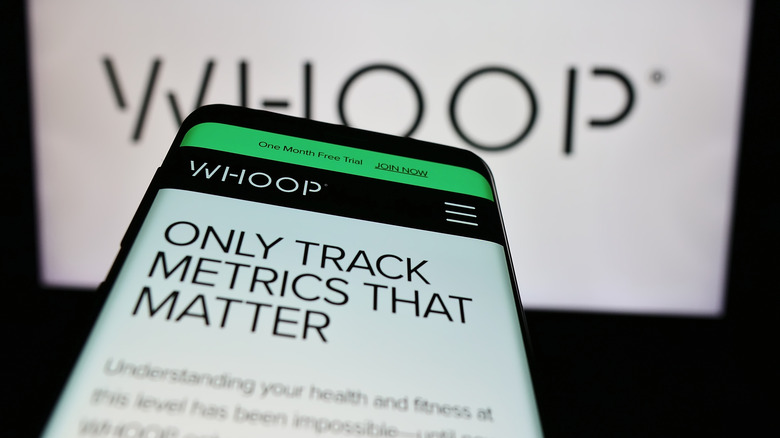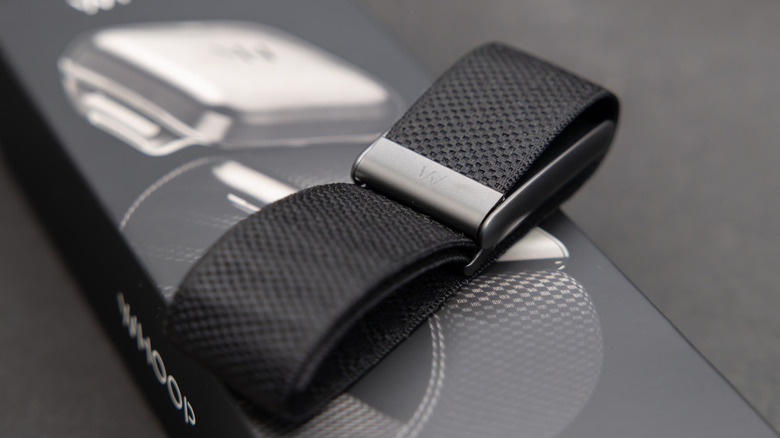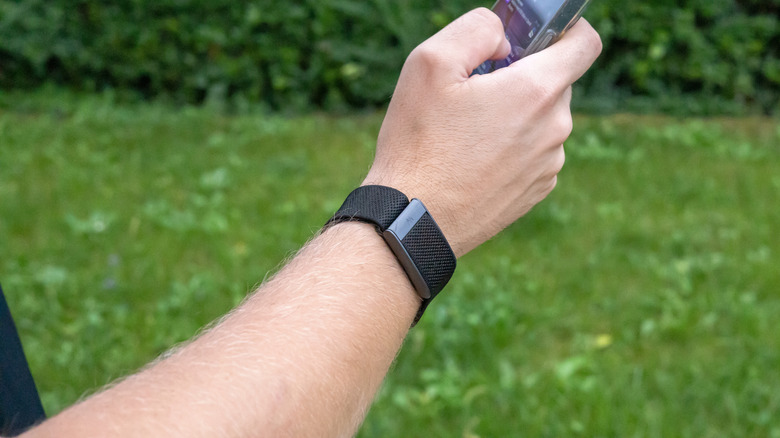Are Whoop Fitness Trackers Worth Buying? Here's What Users Say
Unlike with most wearables and other smart fitness gadgets altogether, the first thing you'll notice about WHOOP from actual wearers is how often the conversation revolves around commitment rather than features. One Redditor put it bluntly: "Personally for me specifically, I found the Whoop to be absolutely not worth the money. I found it unreliable and more of a hassle to check than a habit." However, not everyone shares that sentiment. "I love my Whoop. It's been insightful for my sleep, general health tracking, and was amazing when I started on some new blood pressure meds," wrote another seasoned user.
That disparity right there sums up the Whoop experience. Suffice it to say, the tracker is built for people who take their training seriously; you know, those who treat data on recovery, strain, and sleep as part of the workout rather than merely background stats. Reviewers at T3 agree, describing it as "distraction-free fitness and health tracking" rather than another smartwatch trying to do everything at once.
Still, opinions differ on the price tag. An irate Reddit user admitted, "I love the Whoop, but it's not worth the price. I'd rather be free from it than pay another $200." From all these varied sentiments, the verdict is clear: WHOOP rewards commitment and is a daily source of motivation for athletes and people who care about the data. For anyone else who doesn't fall under that category, it could feel like a high-maintenance habit.
Why fans stick around
So, what, then, keeps people in the "worth it" camp? From our findings, one answer kept coming up — meaningful insights that genuinely change behavior. As one WHOOP user shared: "The sleep tracker made me realise how much time I spent awake [...] it gave me a lot of epiphanies that made me change my sleep habits."
Sentiments from tech reviewers aren't any different. As the T3 team put it in their review, "The Whoop [...] is an excellent fitness tracker but mainly for those who prefer to train hard and would like to know when to slow down a bit." They also noted that wearing it day and night — using recovery as a training variable — is what gives it its magic.
Others praised its comfort, with one frequent contributor in the thread going: "The Obsidian band that came with the 5.0 is great, does not at all feel cheap. Very soft and comfortable, and well made." To some, usability is where it's at. As stated in one comment: "The trends and data felt more usable than every other wearable." And it's not just fan chatter. According to Wareable, WHOOP is "a tool that has a single message: go to bed on time, get enough sleep." In short, for real fans, WHOOP is worth its price because it helps them pay attention to their everyday choices, effort, and rest. However, if you do nothing with that data, it then becomes just another wristband.
The trade-offs you'll want to know
This is where the arguments over cost, hardware quirks, and trust become more heated. In defense of the investment, a loyal WHOOP user wrote: "I've been using WHOOP since 2019 [...] for me, it's definitely worth the investment, especially if you're serious about your health." Another Redditor reviewing the 5.0 version added: "After one week with the 5.0 I overall agree with this review [...] battery is a huge plus, band is comfortable [...] some issues [...] steps algorithm seems way off."
Others, however, fiercely pushed back hard, with one user writing: "It's only a matter of time before everything Whoop does is on the Apple Watch [...] and no subscription." The sentiment isn't all that different over on YouTube. In his review of the Whoop 5.0, UltraLinx praised the device's activity tracking and health tracking, even claiming it was superior to the Apple Watch. However, he goes on to admit that "as great of a device it is, the monthly subscription that I was happy to pay, not really anymore."
Meanwhile, just recently, Android Central reported on an ongoing legal dispute between WHOOP and the FDA regarding its "blood pressure insights" feature, which some users now see as a red flag.
Between constant wear, syncing, and data tracking, one thing remains clear — the WHOOP lifestyle requires discipline. So, if you're the type of person who thrives on structure, it can be an empowering companion.
How we gathered real user insights
To get a true idea of what WHOOP users think, we based this article on verified user experiences and publicly accessible reviews across different platforms. This includes raw comment threads on Whoop subreddits, firsthand impressions from YouTube reviewers, as well as professional write-ups from accessible sources like T3, Wareable, and Android Central.
We also focused more towards long-term users who've had the WHOOP experience for months or even years, as opposed to trial users who only tried it for a few days. For openness and context, we've linked directly to the Reddit user's comments when quoting them, and we've never used any posts behind a paywall or requiring a login.
Moreover, we sampled posts that reflect both extremes of the sentiment spectrum, including users who vouch for WHOOP's recovery and sleep-tracking features and those who were done with it after the trial period, to maintain as much balance as possible. Also, since earlier reviews often mentioned outdated firmware or features, we reviewed recent threads (2023-2025) to gather input on newer hardware, such as the WHOOP 5.0 and MG versions. It's also worth mentioning that no affiliate programs, brand partnerships, or compensation influenced the findings.



